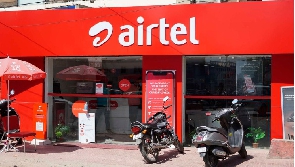 A front view of an Airtel shop
A front view of an Airtel shop
Four hours before the closure of the Airtel’s initial public offering, as the telco struggled to get investors or make a third extension to hit the target of selling at least 20 percent of the floated stock, National Social Security Fund (NSSF) Uganda bought over 50 percent of the eight billion shares.
In a joint statement issued by the NSSF Managing Director Patrick Ayota and Airtel Uganda CEO Manoj Murali on Friday afternoon, Uganda’s biggest pension scheme has invested $52.7 million (Ush199 billion) for 10.55 percent of the 20 percent stock on offer.
Initially, reports had indicated that NSSF was not keen on investing in the telco for fear of burning its fingers. But the last-minute purchase saved the day.
The USE listing rules require that any company offering shares to sell at least 20 percent of the offer or seek approval from the regulator to extend the offer period.
Airtel was allowed an extension after registering lukewarm response from the market.
The investor appetite remained low until NSSF came on to the scene.
Still, high net-worth individuals and institutional investors are gaining more in the IPO after the telco offered bonus shares, in an effort to attract more share uptake.
According to the offer, an investor who buys less than 37 million shares will get 20 extra shares for every 100 shares, while purchases above 2,850 million shares got 112 bonus shares for every 100 bought. This means that institutional investors who buy in bulk get more bonus shares, hence spending about Ush47 ($0.012) per share instead of Ush100 ($0.026), the price of the offer.
The structure was announced by Mr Murali on October 25.
With fewer subscriptions at the end of the first deadline, on October 13, and with lacklustre response during the additional two weeks, the telco modified the terms to attract more investors or give more shares for bulk buyers.
The telco seeks to raise Ush800 billion ($211.7 million), according to the company’s IPO prospectus.
Persistent economic worries, weak returns from listed shares and fairly high-interest rates on government securities have scared off several institutional investors from the Uganda Securities Exchange (USE) despite remarkable half-year results published by listed companies since last month.
Average stock market turnover amounted to less than Ush60 million ($16,000) per trading session in August, while daily trading volumes averaged less than 500,000 shares according to recent USE trading reports, a sign of low institutional investor activity.
Burning fingers
“Several large pension funds have exited their long-term investment positions in the equities markets because of diminished returns. Most of the equities portfolios have generated returns of around three to four percent in Uganda. As a result, large investors have migrated to fixed-income assets, real estate, and private equity investments that offer better returns in comparison,” explained Allan Lwetabe, director for investments at the Deposit Protection Fund of Uganda.
Players such as National Social Security Fund were not keen on investing in Airtel (Uganda) after burning its fingers for holding large stakes in some equities in the region.
“Airtel must have asked: How to attract people still on the fence to come on board,” Stephen Kaboyo, former director of financial services at Bank of Uganda says.
The move by Airtel Uganda to offer the incentive shares mirrors that of MTN Uganda, which gave successful applicants in its 2021 IPO between five and 10 units for every 100 units allocated.
Edward Rugoga, a consultant in stock brokerage services in Kampala said that the history of Uganda’s IPO shows that the lower the price, the more shares the public buys.
Equities markets in the region are underperforming following the offshore investors reducing their holdings in frontier markets in favour of more attractive returns in developed markets.
“The estimated total capital expenditure for the year ending 2023 is Ush44 billion ($11.8 million), with the majority of it being attributable to the addition of sites,” according to the prospectus.
With Airtel Uganda offer to boost USE capitalisation from Ush7.2 trillion ($1.9 million) to about Ush11.2 trillion ($3 million), Uganda will start classification of its market.
But Keith Kalyegira, CEO of Uganda's Capital Markets Authority, said they will step up the process of getting admitted to the frontier market category of the Morgan Stanley Capital International (MSCI).
The move is aimed at driving liquidity by making the market attractive to offshore investors who have a preference for markets that can be classified relative to others, and that are easy to access.
“To achieve a distinction between different markets, index providers or country classification agencies usually place countries into three major development categories, using a transparent and evidence-driven process and a structured framework. The three major categories are: developed, emerging, and frontier markets,” CMA researchers added.
The current level of capitalisation has put Uganda in a comfortable position to be admitted to MSCI which exposed a market to a vast pool of both passive and active funds.
“The objective of passive funds is to find securities that will provide investors with a return equal to the index that the fund’s managers are attempting to replicate,” CMA researchers said.
Airtel promises a high dividend payout ratio of 95 percent of retained earnings or net profit after tax, whichever is higher, based on audited financial statements for the full financial year.
This is also higher than MTN Uganda’s 56 per cent payout ratio at the time of listing.
“Airtel Uganda expects to pay a total dividend of approximately 134.3 billion (Ush500 billion) for the financial year ending December 31, 2023, comprised of quarterly payments,” according to the prospectus.
To remain competitive, the telco revealed plans to increase capacity as well as coverage by adding more sites with a specific focus on data networks. The investment is set to cost approximately Ush202 billion ($54.2 million).